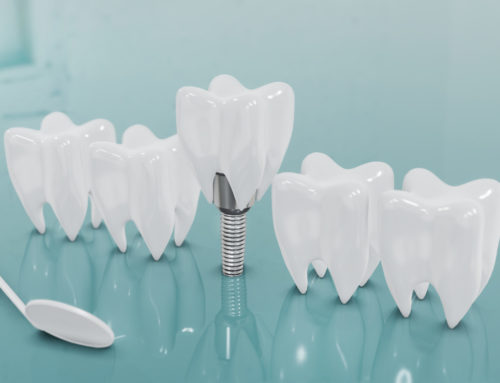If you’re like many people today who still have misconceptions about dental implants, it’s time you learned the truth. These dental and medical marvels they could save your smile and save your health! What you may not know is that implants are a revolutionary breakthrough for people who have had major dental injuries and/or missing teeth.
In fact, implants last a lifetime and ultimately save you money over time. They have superior functionality far above dentures and bridges. Below are a few misconceptions about dental implants that need to be debunked. This article expresses what top oral maxillofacial surgeons and skilled dental practitioners want you to know and understand.
Misconception 1 — Dental Implants are Not Affordable
As a dental patient, you may not be fully aware of the factors that can affect implant costs. For example, one main factor you should know is that implant costs can depend on which kind of tooth is being replaced. Another common factor is the number of missing teeth you need to have replaced. Additional factors that affect cost include:
- The amount of additional dental work/surgeries needed prior to having implants installed
- The possible need for bone grafts, sinus implants, etc. to help support the implant
- The type of implant design technology you choose- such as titanium implants, zirconium implants, etc. Higher quality implants are a very worthy investment compared to getting cheap implants and needing corrective surgery later on.
The truth is, dental implants very affordable. Even more, implants last more than 50 years when they’re well-installed and when you take good care of them. Once you invest in your dental health here, you won’t have to worry about implant replacements like bridges or dentures. Ultimately, you save in the long-run.
Misconception 2 — All Implants are Created Equal
The truth is, not all dental implants are created equal. In the case of most things, you get what you pay for here as well. Unfortunately, there are surgeons out there who will offer you a cheaper cost for implants. However, if the implants are not made from quality materials, the chances of implant failure are much higher. In the end, you could end up back in the oral surgeon’s seat with additional problems and dental complications.
As a rule, you should always do your research to learn which dental implants offer good quality and lasting functionality. High-quality implants, combined with a skilled oral surgeon to install them, can equate to high success rates and satisfying results.
Misconception 3 – Any Dental Professional Can Install Implants
Before you have implants installed, know that not every dentist or oral surgeon can install them. There are special training courses and specific medical requirements that skilled practitioners must undergo prior to performing surgery. Your oral surgeon’s experiences and surgical success rates are other crucial factors that help qualify them. You will be able to develop trust and learn of the surgeon’s experience and training during the consultation.
Highly experienced surgical specialists, like oral maxillofacial surgeons, are well-trained oral surgeons who regularly practice dental implantology. They have extensive training in medical surgery and dental medicine and can perform various types of facial and dental procedures. Only certain kinds of dental specialists and oral surgeons are available to perform the complex procedure of dental implants, so be sure to ask questions.
Misconception 4 – Getting Implants is Painful
In case you didn’t know, this is far from the truth. When you’re having implant surgery with the right kind of skilled and experienced dental practitioner, it’s practically painless. The surgeon will administer general anesthesia to ensure that you’re comfortable beforehand. While you’re sleeping, the implant posts are safely and properly installed into the jawbone.
You’ll need time for your gums to heal before the abutment and crown are installed; however, this depends on the type of implant procedure you’re having. Your gums and dental bone will adjust to the implant and fuse together during the healing process. Immediately after surgery, you’ll be given some medications and a set of aftercare instructions to follow. Most patients rest for a few days after surgery, then return to normal activities. When you have implants these days, it’s no different from having a tooth extraction. This is especially true when you’re under the care of a professional.
Misconception 5 – It’s Hard to Consult with an Oral Surgeon
If you’re considering dental implants, and you live in the Greater Houston area, take the first step and consult with the professionals of OMSH. If you see a regular dentist, ask for a referral to an oral maxillofacial surgeon for implants. We’re just a phone call away at 832-509-4505, or you can contact OMSH online for more information.





